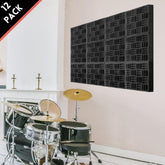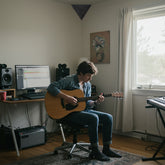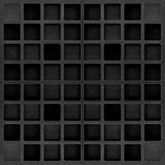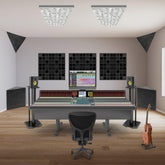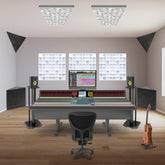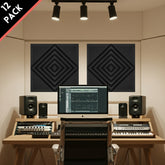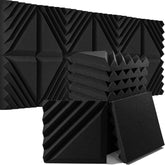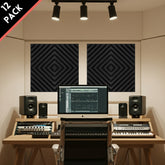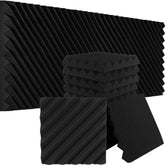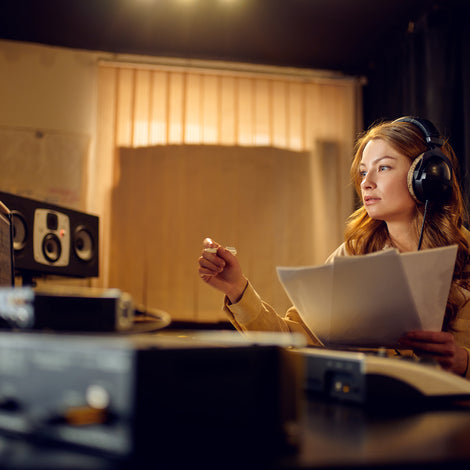A Beginner's Guide to Sound Engineering Basics
A Beginner's Guide to Sound Engineering Basics

Embarking on Your Journey in Sound Engineering
The art of sound engineering is an intricate blend of technical knowledge and creative prowess. For beginners aspiring to master this craft, especially in the realm of home recording and studio work, understanding the basics is crucial. This guide is designed to demystify the essentials of sound engineering, offering a solid foundation for those starting their journey in the world of audio production.
Introduction: The World of Sound Engineering
Sound engineering is a vast field that encompasses everything from recording and mixing to mastering audio. For beginners, starting can seem overwhelming, but with the right guidance, the world of sound engineering is rich with possibilities and opportunities for creative expression.
1. Understanding Sound and Acoustics
Before diving into equipment and techniques, a fundamental understanding of sound and acoustics is essential.
The Nature of Sound
Sound is a wave that travels through the air, and understanding its properties, such as frequency and amplitude, is crucial for sound engineers.
Room Acoustics
The acoustics of your recording space can significantly impact the quality of your recordings. Learning how to optimize room acoustics is a vital first step.
2. Essential Equipment for Your Home Studio
To start as a sound engineer, especially for home recording, you need to equip yourself with the right tools.
Microphones: Capturing Sound
Different types of microphones, like condenser and dynamic, have their unique characteristics. Knowing which microphone to use in various situations is key.
Audio Interfaces: Connecting the Dots
An audio interface is essential for converting analog sound into digital format and vice versa. Choosing the right interface is crucial for quality recording.
3. The Digital Audio Workstation (DAW)
The DAW is the centerpiece of modern sound engineering, acting as a powerful tool for recording, editing, and mixing audio.
Navigating DAWs
Understanding the basic functions of a DAW, such as track layering, editing, and applying effects, is fundamental for any aspiring sound engineer.
Choosing the Right DAW
There are many DAWs available, each with its features and workflow. Selecting one that suits your needs and learning it thoroughly is important.
4. Recording Techniques and Tips
Recording is an art, and mastering it requires both technical know-how and creative thinking.
Mic Placement and Techniques
The placement and choice of microphones can dramatically affect the sound quality. Learning various mic placement techniques is crucial.
Understanding Gain Structure
Proper gain staging ensures optimal audio quality and reduces noise. Beginners should understand how to set gain levels correctly in different scenarios.
5. Mixing and Mastering: Polishing Your Sound
Once your audio is recorded, mixing and mastering are the next steps in producing a polished final product.
The Basics of Mixing
Mixing involves balancing levels, panning, EQing, and adding effects to create a cohesive and pleasing sound.
Introduction to Mastering
Mastering is the final step in audio production, refining the overall sound, ensuring consistency, and preparing the track for distribution.
6. Developing Your Ear and Continuous Learning
The journey of a sound engineer is one of continuous learning and skill development.
Training Your Ear
Developing a critical ear for sound is crucial. This skill improves with practice and exposure to various types of audio work.
Staying Updated and Practicing
The field of sound engineering is always evolving. Staying updated with the latest technologies and techniques and consistent practice are key to growth and success in this field.
Conclusion: The Start of a Rewarding Journey
Embarking on a career as a sound engineer is a journey filled with challenges and opportunities. With dedication, practice, and the right knowledge, beginners can make significant strides in this dynamic field, whether in a home studio setting or a professional environment.
ABOUT AUTHOR
House Live Engineer of Free Bird, a live house with the history of South Korea's indie music scene.
Single album/Regular album/Live recording, Mixing and Mastering experience of various rock and jazz musicians

